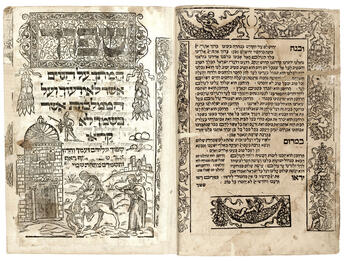Response to Martin Luther
Josel of Rosheim
1543
I would also humbly bring to Your Honours’ attention that the said Dr. Marti[n], not content with what he has already accused us of in the way of great iniquities, has now published another booklet, entitled Shem Hamephoras, in which he states that our forefathers wrote insulting things about your Messiah and your faith, things that undoubtedly…
Creator Bio
Josel of Rosheim
Josel (Joseph) of Rosheim represented German and Polish Jews at the courts of Maximilian I and Charles V. Born in Hagenau, he lived in Mittelbergheim and later in Rosheim. In 1510, he was elected by the Jews of Alsace to represent them, and from that time on he worked as an advocate for Jewish communities, notably as representative for all Jews in the Holy Roman Empire. Besides his apologetic pamphlets, Josel of Rosheim wrote several religious and ethical works, parts of which are still extant. His memoir, written around 1547, is a personal testimony of some of the key events in the history of the Jews of the time.
Related Guide
Education and Scholarship
The early modern period featured educational reforms, anti-Christian polemics, and growing Jewish university participation.
Ḥizuk emunah (Faith Strengthened), which is based on theological conversations he had—in Latin and Polish—with representatives of various churches. Troki died without finishing the work, and his pupil, Joseph ben Mordechai Malinowski, completed the preface and index. Ḥizuk emunah offers a reasoned defense of Judaism and critically analyzes Christian tradition and belief. It circulated in manuscript form among Jews for many years; it was printed in Hebrew only in 1705 and in Yiddish in 1717. A Latin version, by Johann Christoph Wagenseil, came out earlier, in 1681, together with Wagenseil’s refutation. Troki’s arguments later became popular among eighteenth-century anticlerical writers, including the French philosopher Voltaire, who described the work as a masterpiece.
You may also like



